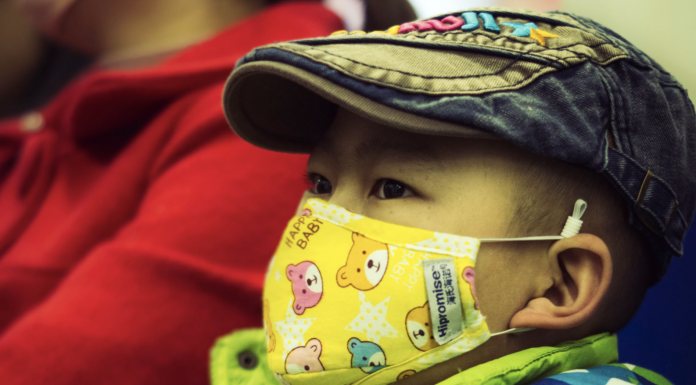Pros and cons of wearing a mask
- The truth about masks and COVID-19 from the American Lung Association
- Answer from a pulmonologist at Cleveland Clinic
- 9 Side Effects of Wearing Face Masks from Eat This, Not That!
American Lung Association
by David G. Hill, M.D. | June 18, 2020
Are Masks 100% Effective?
The gold standard N-95 mask is 95% effective at keeping the wearer free of inhaling viral particles. These masks are still best reserved for front-line workers in high risk settings where aerosols of viral particles occur. Surgical masks are less effective and cloth face coverings even less so in protecting the wearer. However even a 50% reduction in viral transmission is statistically important.
For the general public, the reason for wearing a facial covering is to help protect others from you when you cough, sneeze or even talk and spray viral droplets into the air. Many people who become infected can unknowingly spread the COVID-19 virus because they have few or no symptoms.
So wearing a mask is showing respect for others and is your way of helping lessen the spread of the disease. It is important that the mask not be so thick as to make breathing through them completely uncomfortable. Filter inserts are probably not necessary and may make the masks more uncomfortable.
“Mask wearing allows us to open the economy up faster. Not wearing a mask around others only worsens the pandemic, leads to more disease, and worsens the economic effects.”
Do Masks Cause Low Oxygen Levels?
Absolutely not. We wear masks all day long in the hospital. The masks are designed to be breathed through and there is no evidence that low oxygen levels occur. There is some evidence, however, that prolonged use of N-95 masks in patients with preexisting lung disease could cause some build-up of carbon dioxide levels in the body. [Further information on this below.]
People with preexisting lung problems should discuss mask wearing concerns with their health care providers. There is absolutely no scientific evidence that mask wearing or physical distancing weakens the immune system. Source.
Cleveland Clinic
Sep 4, 2020
Q: We’ve seen social media posts that speak to masks affecting our health in negative ways. Should we be concerned?
A: There can be behavioral reasons (young children, psychiatric illness, autism, claustrophobia, etc.) for why individuals might not tolerate a mask or not understand the reason for wearing one. This is especially true with small children.
When it comes to them, the CDC doesn’t recommend putting masks on children under the age of two because they aren’t capable of removing them and they could suffocate.
At the Respiratory Institute, we’ve taken the position that there is virtually no circumstance that warrants an exemption from wearing a mask based on lung disease. Exceptions come along with the risk of individuals endangering themselves and everyone around them.
But we have a collective responsibility to make sure that we are not placing our community in harm’s way.
Many patients with significant respiratory issues are able to wear masks without difficulty. Even patients on the lung transplant waiting list who arguably have the severest forms of advanced lung disease are able to wear masks. If they can do it, anybody can.
As for CO2 retention, I have not seen any evidence for it with any mask type, including N95 masks. It certainly does not apply to cloth masks or any masks that do not provide a tight seal.
– Pulmonologist Raed Dweik, MD, Chairman of Cleveland Clinic’s Respiratory Institute Source.
ICYMI: 13 Things Happen When You Get Coronavirus (Some In Just 2 Days)
Eat This, Not That!
9 Side Effects of Wearing Face Masks
Oct 30, 2020
- They can mess with your sight.
- They can be uncomfortable.
- They can restrict airflow in ways that matter under two conditions:
– “For people with COPD [chronic obstructive pulmonary disease] face masks worsen breathlessness. Moreover, a fraction of carbon dioxide previously exhaled is inhaled at each respiratory cycle. Those two phenomena increase breathing frequency and deepness, and hence they increase the amount of inhaled and exhaled air.– Wearing a mask may also worsen the clinical condition of infected people if the enhanced breathing pushes the viral load down into their lungs. If you feel you have COVID-19, you should quarantine yourself away from others and remove the mask. - They can cause glasses to fog.
- They can force you to inadvertently draw closer during conversations.
- They can foster a false sense of security.
- They can spread disease if not washed.
- They can hurt children under two—or others who are incapacitated.
- They can cause skin irritation. Source.
ALSO ON HEADLINE HEALTH TODAY: 9 States Where Biden Mask Mandate Is DOA | Masks Ranked | Biden’s Agenda Could BANKRUPT U.S. Hospitals



